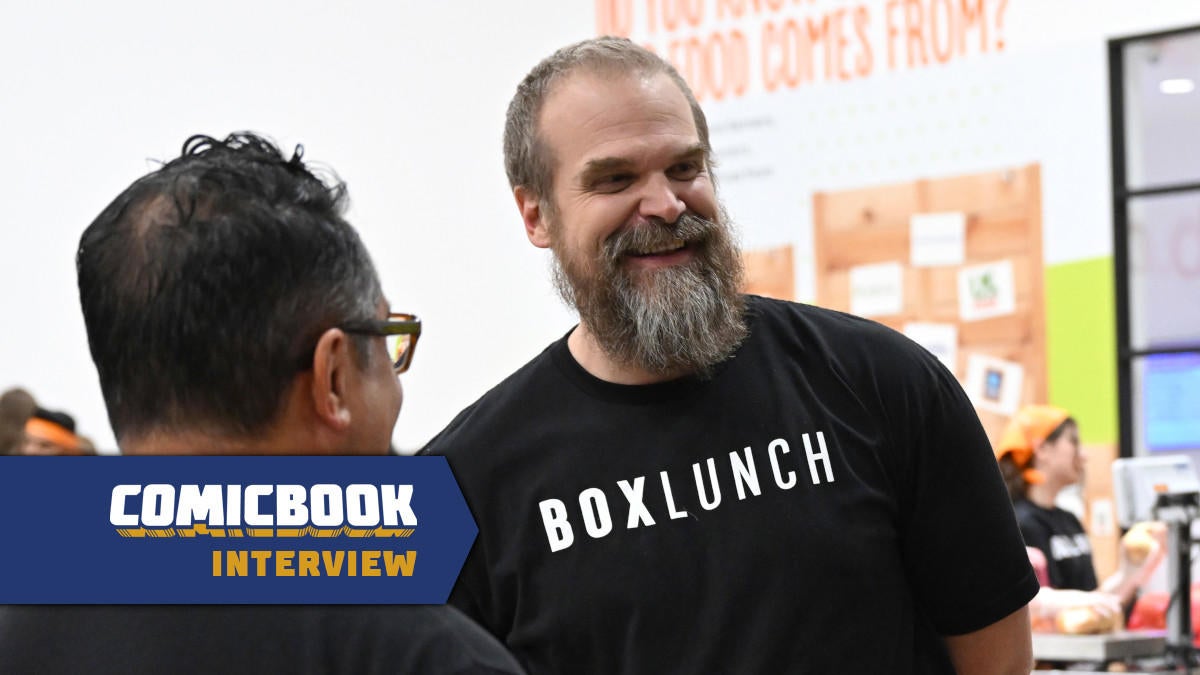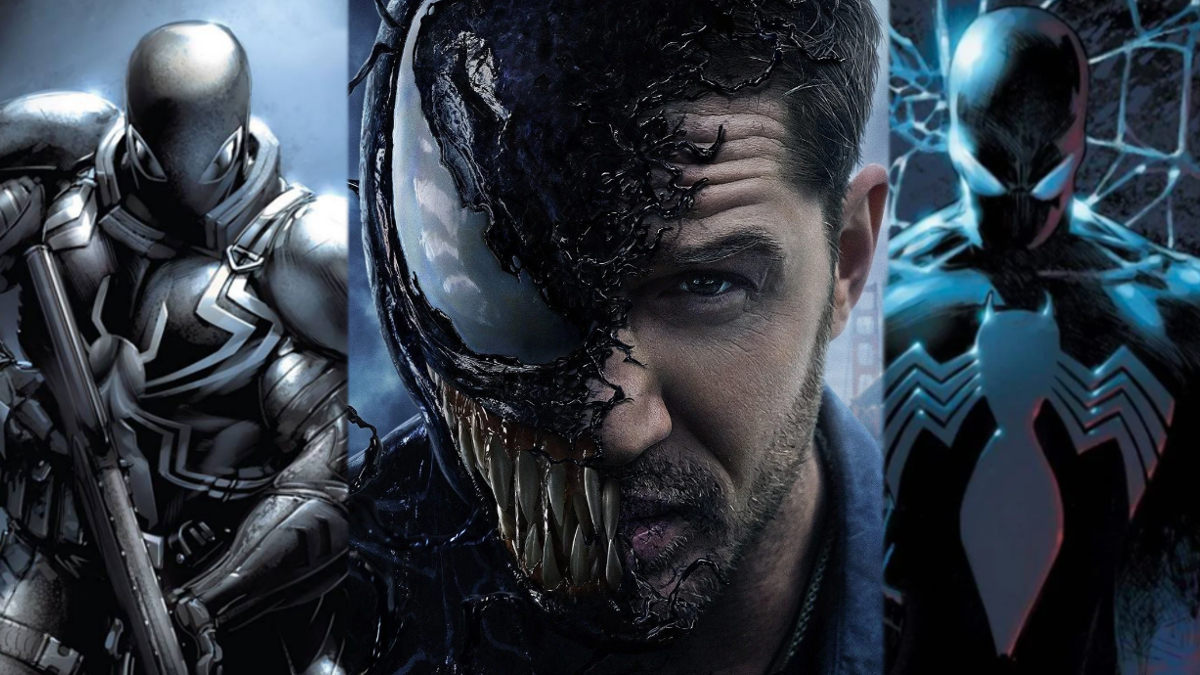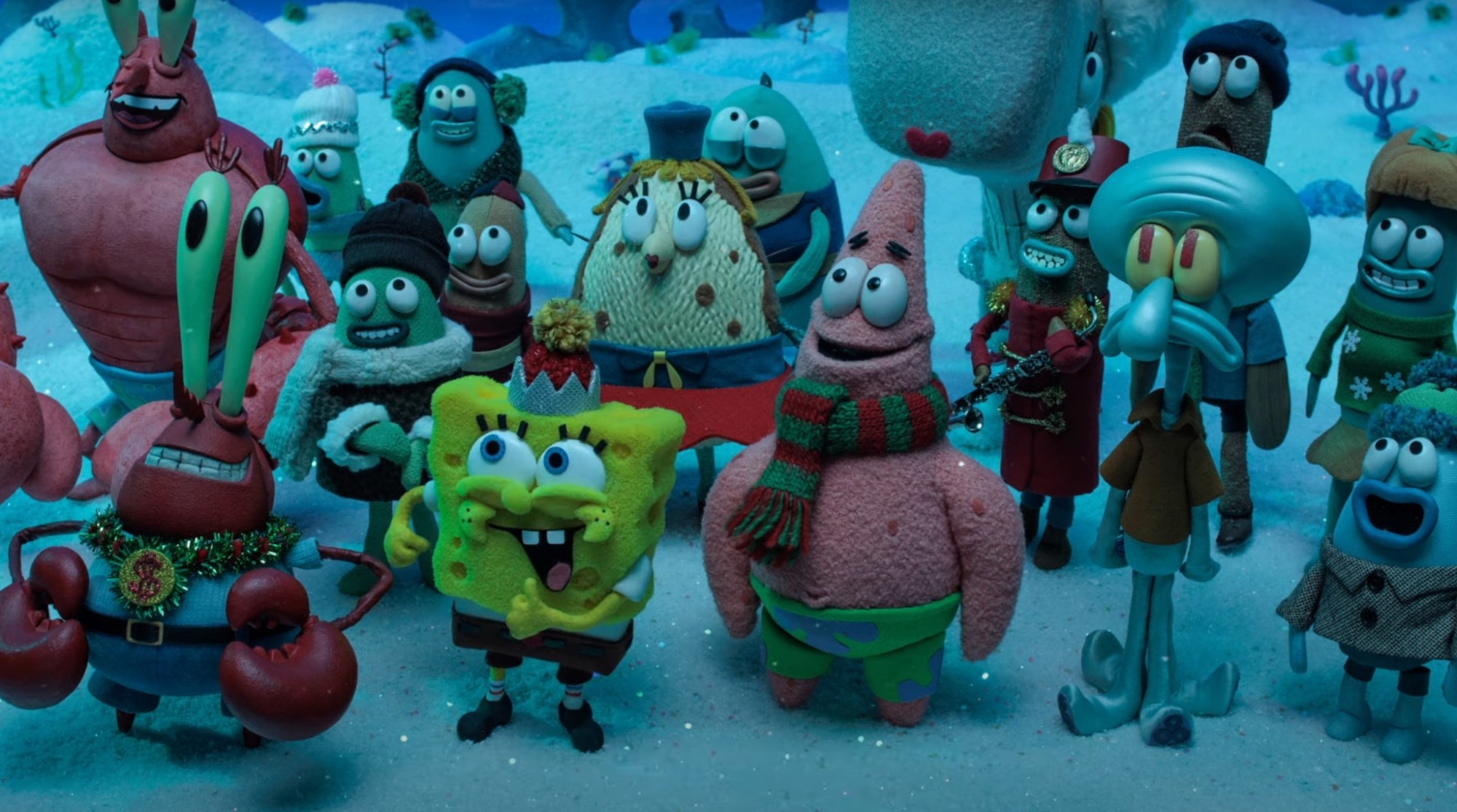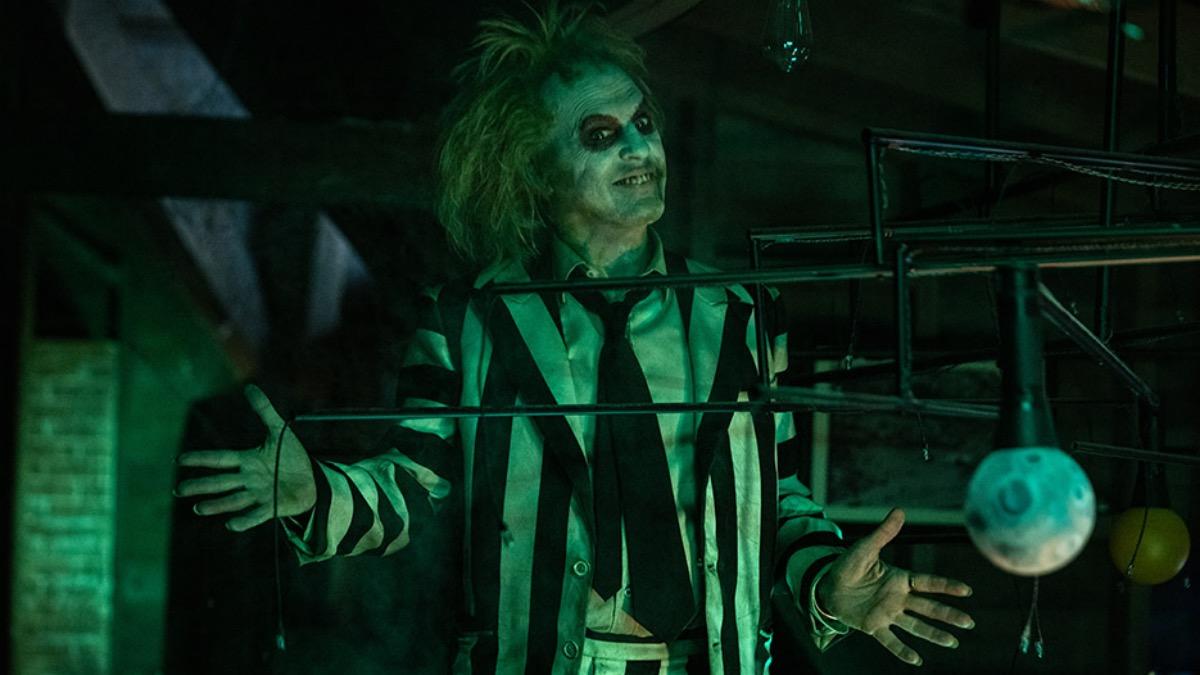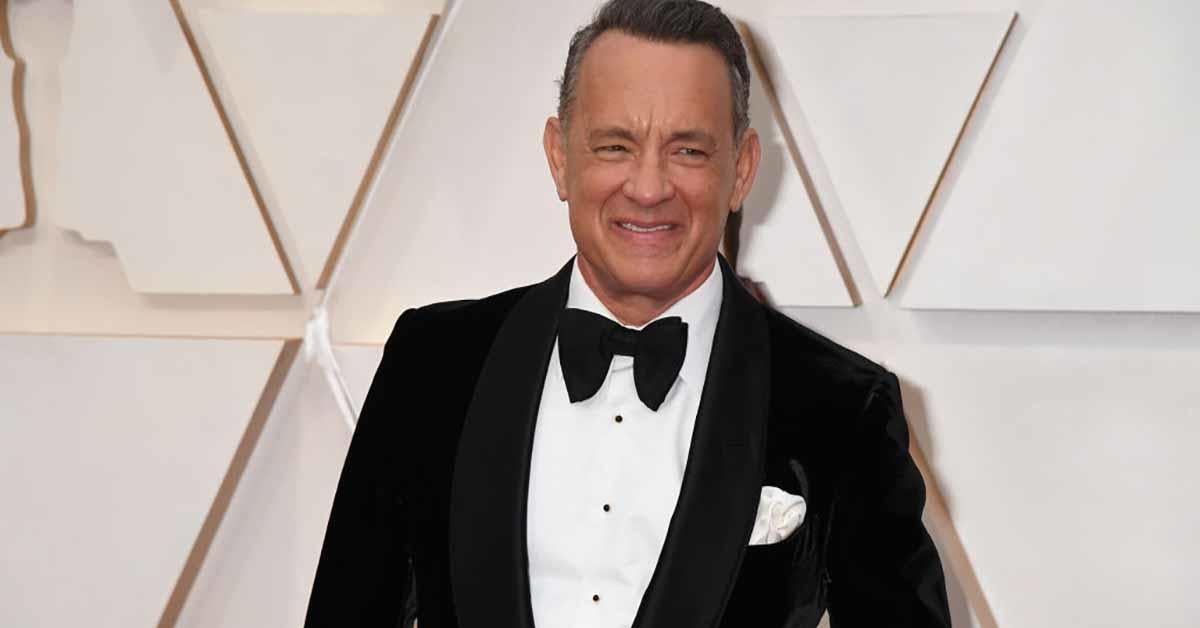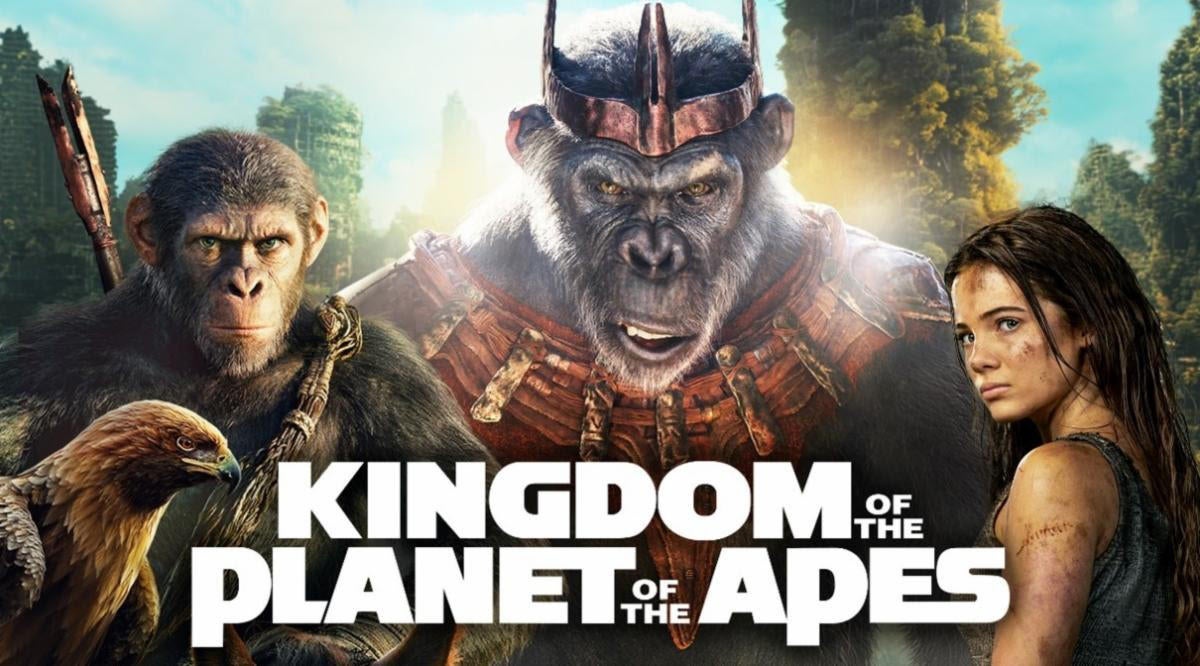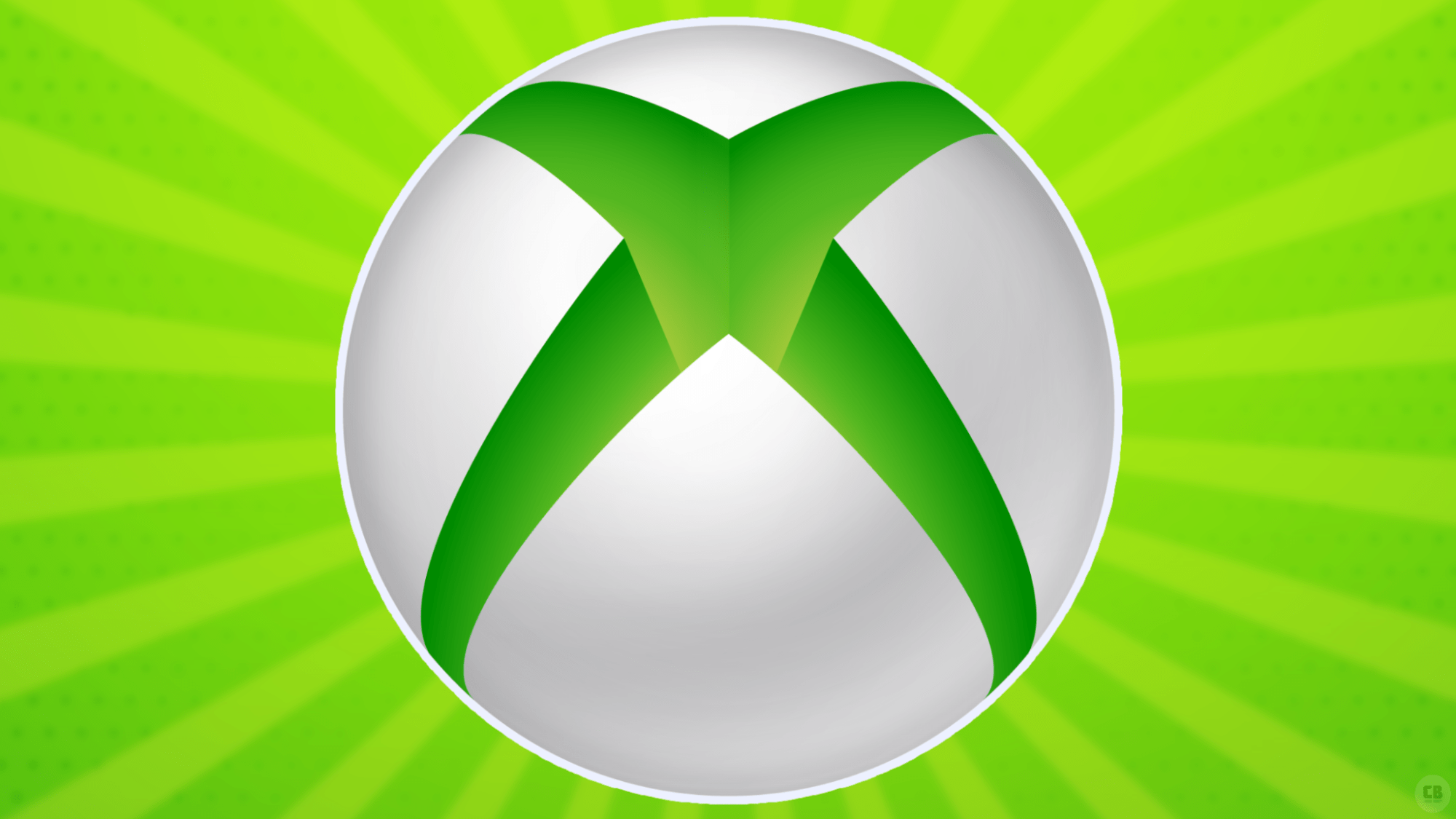In October of last year, Stranger Things and Marvel star David Harbour was given a brand new title, the BoxLunch Giving Ambassador. Embracing both Harbour’s passion for food accessibility and ending hunger in America with his status as a major figure in pop culture, it was an easy partnership for the actor and BoxLunch. Since then Harbour has appeared in a marketing campaign for the brand and helped raise money for Feeding America at the annual BoxLunch Holiday Gala (where he personally donated $200,000).
ComicBook caught up with Harbour recently on a day he was volunteering at the Atlanta Community Food Bank, which distributes over 36 million pounds of fresh produce annually. Over the course of a few hours Harbour worked alongside other associates from the BoxLunch retail stores across Georgia, Florida and Alabama to volunteer at the center. Speaking with us in an exclusive interview, Harbour broke down what the past year of working with BoxLunch has been like for him, how it has changed his perspective on food insecurity, and how the larger issue of hunger in America can be addressed further.
ComicBook.com: It’s been about 10 months since you became the brand ambassador for BoxLunch. How has your perspective on that changed?
David Harbour: I mean, I’ve seen there’s been a huge increase in food insecurity in this country, and I kind of can’t believe it with inflation rising. Even this particular facility has increased its output like 60% or something in the past, I think it’s in the past year. So I think I’ve been kind of overwhelmed by the necessity of the work that these people do, and just the overwhelming amount of people in this country that are food insecure. I think that’s been the most profound learning (moment). You tend to think of America as a pretty well-off country compared to a lot of other countries in this world. Then you start to see numbers like this and the numbers are kind of incomprehensible at a certain point, but they do give an impression of… we’re not as well-off as I generally think we are and we need to do a lot of work to change that. That’s really been a big part of the journey is the amount of work that needs to get done.

Rick Vargas, Senior Vice President, Merchandise and Marketing at BoxLunch, David Harbour, BoxLunch’s Giving Ambassador, and Alfia Tarassenko, Feeding America’s Manager of New Partnerships
– Paul Giunta/Shutterstock for BoxLunch)
CB: It’s easy to see those numbers on a sheet or hear someone say those numbers. Does coming to a facility like this really put it into perspective what those numbers are?
David Harbour: Yeah, because you can’t… As human beings I think we are such visualizers of space. So you come here and you see the enormity of the operation. You see volunteers just coming in for three-hour shifts. And, yeah, there’s just a lot of work to be done. I mean, I am also, not to be too dark about it because I am inspired by the amounts of people that are (here), this facility is so vast. People are showing up to volunteer here and then people do work here full-time. They are working on expanding their structure. So that’s very inspiring. But, yeah, it does help to see it in the flesh. It gives it a whole new dimension, no pun intended, but it becomes three-dimensional.
And I heard you talking about it out there, but you’ve been in Atlanta for stuff for years now. I’m sure people down there immediately recognize you from any number of things. So what does it mean to you to see this community in action that you’ve been a part of for so long?
David Harbour: I really love it, and it’s nice to be on this side of it. The funny thing is Atlanta has a huge film industry now, and I know that when I drive to work, I drive through some pretty poor neighborhoods. Then I get to my very nice studio and treated very well and given nice catering and nice food and stuff. I do think every time I drive through these neighborhoods that we should be doing more. But we’re all hell-bent on making fun shows for people to watch and people to have catharsis. And again, I think that’s important, too. But it is something that I think about almost every day when I drive through these neighborhoods. So it’s nice to be able to come to a place like this to see that work being done and give me an idea of how we could do it even more locally, how my friends at the studio and my fellow castmates and stuff could make a bigger impact. Because I think it’s important not just to work in Atlanta but to live in Atlanta. And I think the film industry is trying to do that more and more.

David Harbour, BoxLunch’s Giving Ambassador, and BoxLunch retail store associates from Georgia, Florida and Alabama
– Paul Giunta/Shutterstock for BoxLunch)
You sort of touched on it there, inspiring people with the things that you do. People here probably recognize you from Stranger Things or Marvel, but at what point in your career when you’re making this stuff did it sink in ‘Oh, it’s not just a job for me,’ it is impacting other people. It’s affecting the way that they look at the world.
David Harbour: Yeah. I’ve always been cognizant of that as an artist. Like ever since I was doing, I think I got my first professional job at a regional theater when I was 19 years old doing Taming of the Shrew up in Maine. And I got to say that, not to toot my own horn here, but my impulse has always been that we are a service industry and that we are vessels for something bigger than ourselves. The reason when I watch performers that I love, it’s all about making me feel understood and less alone and more comfortable with how weird it is to be alive, and I want to do that for other people. I’m not big into the exclusionary star thing where it’s like I exist outside in a world that is magnificent to look at my muscles and my fancy clothes. I have to occupy some of that world as a businessman but in general, my thrust has always been that the artist is the person that allows you to feel the things that maybe you can’t feel in your life or that feels too confusing, gives focus to them, allows you to see that we all struggle. I think in that way, I think it’s a noble profession.
Do you think that has been sort of what has planted the seed for the fact that you’re kind of a character actor? You play these sort of roles?
David Harbour: Yeah, for sure.
I think that’s a compliment to be a character actor.
David Harbour: I mean, me too, and in fact, it’s part of the reason…I think that the most interesting stories are not the ones that are cliche romantic stories of heroism, simple heroism or whatever. I think that people are complex. I live life and I feel all kinds of complexity and I know that when I go see a movie or a TV show that enters into that complexity, I feel understood. When I go see the opposite, when I feel like someone’s exclusionary, it’s like you shouldn’t be feeling these things. I get annoyed and feel bad about myself. So I want to give people food or a thing that they makes them healthy. I think that’s compassion, and I think that my way of doing that is to be as much of a weirdo as I think we all feel, if that makes any sense.

David Harbour, BoxLunch’s Giving Ambassador, teams up with BoxLunch and Feeding America at the Atlanta Community Food Bank to bring vital support in the fight against hunger.
– Paul Giunta/Shutterstock for BoxLunch)
In season four of Stranger Things, you were kind of on your own. You weren’t really part of the larger ensemble. Was that tough for you to not be around the group that way? Maybe your work on season five made it a little easier?
It was a challenging season for a number of reasons. The biggest being COVID and just the ripples that that sent through our industry, because we are an industry of intimacy. mean, we are close. We are about humanity. We’re about engagement and we had masks and face shields and we were just very afraid of each other. So that was really tough. I also had to do a lot of weird weight loss stuff, that was really tough. The being alone thing is it was kind of OK, because I had to.I mean, we’ve been together a long time, it’s like it’s like a family, sometimes you need a vacation. So I think that was in a way sort of fun, and I had guys like Tom (Wlaschiha) and it was it was a cool storyline.
So I enjoyed it. Getting back to the OG crew of this final season has been wild in a way because we have come so far and it is not the show that we started in season one. I think that’s a wild experience for all of us. I mean, those kids were 11 years old when we started, 12 years old. Now they’re 20 and they’re shaving and they aren’t kids anymore. Finn (Wolfhard) just directed a movie. I think to have it all come back full circle…We just read we just did a read through of the last episode and the amount of crying… like the episode is very beautiful. But there’s also a deeper level of that, this was actually their childhood. They were 11 years old and grew up and fought this monster. And I’ve never seen so much heavy, heavy weeping from teenagers or young adults in my life.
It wasn’t like the Game of Thrones table read for the finale where people were like throwing their scripts across the table.
David Harbour: No, the interesting thing is…there was some cameras there, but we didn’t do it for the publicists or the Instagram people. There was something intimate about the way they structured it that I’m hoping that you don’t see very much of that, because there was something profound in the sense that we are a family. There is the deeper level, it is about us as individuals who’ve worked together for nine years since they were kids, and that really came through. There was a real deep kind of honesty and heartbreak and bittersweet quality to all of it.
Have you seen the prequel play?
David Harbour: Yes, I did.
What did you think of it?
David Harbour: I mean, it was interesting.
Did it do something differently with Jim that you were surprised by?
David Harbour: He’s like 16, right? It’s a whole different thing. I mean, I don’t have any ownership of it. I’m sure it’s what Harrison (Ford) felt when they did Young Indiana Jones. It’s like, OK, this is a guy that you guys own or whatever. I was not consulted creatively. I was not asked anything about it. It’s just this is their interpretation. So, yeah, it was interesting. I’m very supportive of all those people involved, and the sweet kid who plays Jim Hopper. I gave him my hat that I wore in season one. I just wanted him to make it his own for him to have ownership of it. So that was a really nice moment.
Now, when James Gunn took over DC, he said that, you know, it was going to be like the animation characters would be played by the same people in live action, would be played by the same people in games, we’ll see if that if it comes to that. But, you know, you voice Frankenstein in Creature Commandos. Do you know when you’re going to play him in live action or is that just like you’re waiting for that phone call?
David Harbour: I don’t know if I’m waiting for the phone call. I mean, I’m not like down by the phone, but no, there’s nothing specific yet or at least I haven’t heard anything specific…I think Frank (Grillo’s) already moved into Peacemaker. I have a feeling it probably will come up. The project’s really good. We’ll talk about it at New York Comic Con, but it’s like it’s it’s very special, very funny. I think you’ve probably seen the trailer. It’s really great. All those all those characters, Dr. Phosphorus and the Bride…I can’t imagine they wouldn’t want to do it live action, but we’ll have to see. That’s all in the mind of the wacky, brilliant James Gunn.
Are you dreading being under makeup to play that character?
David Harbour: Yeah, because I wonder what it would be. I’m…yeah, I’m not thrilled about that. I think they might do…if they did it. I think they might do the CGI thing that they did with Taika in Thor: Ragnarok. I feel like there’s probably a universe of that nowadays. I feel like the practical stuff, although I love it, is really falling a bit by the wayside.

David Harbour, BoxLunch’s Giving Ambassador, and BoxLunch retail store associates from Georgia, Florida and Alabama
– Paul Giunta/Shutterstock for BoxLunch)
After that, Thunderbolts is coming up and you’re reprising that role in the MCU. Do you know why there is an asterisk in the title?
David Harbour: Yes. (Laughs)
When did you find out why there was an asterisk in the title?
David Harbour: I mean, they retroactively put the asterisk (in). The asterisk was an idea that that someone had…..What can I say that’s not going to get me in trouble? …The asterisk is very cool. I understand why people might put an asterisk there (laughs) I’m excited for the viewers to see that as well. But I, again, I just can’t say anymore.
When you’re making a huge Marvel movie like that, and you’re part of an ensemble, are you guys at all aware of the rumor mill online about the movie or like the conversation or the theories that people are throwing out or you just totally focused on set?
David Harbour: Yeah, not really. I mean, I’ve started to move away from all of that because I feel like I just run into AI articles.
I’m like, who wrote this? This isn’t even English. But I think that it can get dangerous because I don’t want to hear what everyone’s opinion is about all kinds of stuff about me. But we are very comic book true, which I was pleased about. I think there might be some speculation of what people understand about the comics as opposed to people that have actually read the comics. I think there’s a lot of experts out there that get very annoyed at things. And if you go back and you actually look at it, you might see something different. I think that we’re very into that idea, and yet it is, of course, very surprising because, you know, I don’t think Red Guardian is in any of the Thunderbolts stuff. So they are adding things like they are adding and surprising you with things. But, you know, there’s a lot of stuff, a lot of stuff that we’ve done to make it comic accurate as well.
Making a movie, you can’t really look outside for critiques because everybody, everybody sees the poster and they have an opinion. You’re like, ‘just watch the two hour movie and if you still hate it. Great. Love it? Great.’ But, like, you’ve got to give us a chance. I think all the speculation in the world is like my fantasies about dying or what. I mean, it’s like you can fantasize about horrific things or whatever until you actually see the thing. I’m very proud of this movie, what we shot. I hear it’s playing well internally and I’m excited for people to see it. I think it’s going to really surprise people. I think people have seen from the trailer, from the shots. I think it’s a pretty cool direction of the MCU’s sort of making now. And I’m excited to be a part of that.
Just to wrap it up, is there something that you really want to do that you haven’t gotten to do yet? Work with a certain director, play a certain character, be in a certain franchise?
I mean, there’s like a billion things that I’d like to do. In terms of your world of comicbook.com, I love working in that world and I want to continue to work in that world. Right now, I’ve done Stranger Things, Thunderbolts, Creature Commandos….and I’m looking for the next thing to be, for lack of a better word, a little more middle-aged man. Middle-aged man dealing with middle-aged man problems. That’s kind of the next thing on the agenda. But in terms of working with people, I mean, I can name a hundred. Not a hundred, I can name 15 directors that I would love to work with. And there’s so many interesting projects going on out there. I just love it all. I really approach it from, like, a little boy at a buffet attitude I just love so much of it that I want to eat it all.
